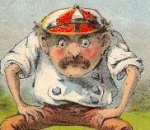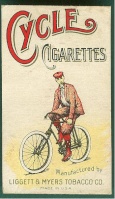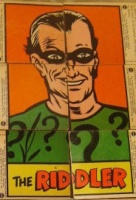19th Century cards
3 posters
Page 1 of 1
 19th Century cards
19th Century cards
Anyone collect them by player milestone?
Such as:
First shutout, Hit, HR, etc.
Highest average, Most HRs, most consecutive ...
more, more, and then some (history)

Such as:
First shutout, Hit, HR, etc.
Highest average, Most HRs, most consecutive ...
more, more, and then some (history)


ItsOnlyGil- Retired

- Posts : 1145
Trader Points :



 Re: 19th Century cards
Re: 19th Century cards
The only one I kind of collect that way is Tip O'Neil, highest single season batting avg. My 19th century collection has kind of evolved from the random ones I picked up early in my collecting.
Lee
Lee

bowlingshoeguy- Sultan of the Cycle Back

- Posts : 3106
Trader Points :



 Re: 19th Century cards
Re: 19th Century cards
Well to me:
19th Century cards cost a lot.
And although I could obtain no-name players chosen solely on the card's appearance (and the grade), I don't do that.
Exactly. Well, I do.
But first, I research the "no-name" player to find out some thing about him which makes him more interesting than the average no-name player - somehing he did - or something that happened to him.
For example: a .248 /.300/ .317 hitting outfielder for Chicago in the 1880s has become a rather popular card because the player, Billy Sunday, became a well known evangelist after baseball.
This tho is a card which has already gone up in value, because of a special interest associated with a no-name player.
I select players whose cards have not gone up in value because of factors potentially of interest.
An example of this is shown below.
This player pitched 16 shutouts in the initial National League season, he also started his team's first (consecutive) 88 games, and pitched the NLs first no-hitter in 1876.
http://cgi.ebay.com/Bradley-1887-Old-Judge-N172-Sioux-City-RARE_W0QQitemZ380114071956QQihZ025QQcategoryZ86839QQssPageNameZWDVWQQrdZ1QQcmdZViewItem
To obtain this player's card in the condition shown, and at the price shown, seems to me to be a bargain. I did not bid on this because I have one of his cards.
19th Century cards cost a lot.
And although I could obtain no-name players chosen solely on the card's appearance (and the grade), I don't do that.
Exactly. Well, I do.
But first, I research the "no-name" player to find out some thing about him which makes him more interesting than the average no-name player - somehing he did - or something that happened to him.
For example: a .248 /.300/ .317 hitting outfielder for Chicago in the 1880s has become a rather popular card because the player, Billy Sunday, became a well known evangelist after baseball.
This tho is a card which has already gone up in value, because of a special interest associated with a no-name player.
I select players whose cards have not gone up in value because of factors potentially of interest.
An example of this is shown below.
This player pitched 16 shutouts in the initial National League season, he also started his team's first (consecutive) 88 games, and pitched the NLs first no-hitter in 1876.
http://cgi.ebay.com/Bradley-1887-Old-Judge-N172-Sioux-City-RARE_W0QQitemZ380114071956QQihZ025QQcategoryZ86839QQssPageNameZWDVWQQrdZ1QQcmdZViewItem
To obtain this player's card in the condition shown, and at the price shown, seems to me to be a bargain. I did not bid on this because I have one of his cards.

TheRiddler- Custom

- Posts : 1404
Trader Points :



 Similar topics
Similar topics» Grading of 19th Century Cards
» Why does it seem like 19th century cards get no love?
» Let's see some beautiful 19th century cards
» Current market for 19th century cards
» 19th Century Game Cards: 1888 WG1 & 1889 E.R. Williams
» Why does it seem like 19th century cards get no love?
» Let's see some beautiful 19th century cards
» Current market for 19th century cards
» 19th Century Game Cards: 1888 WG1 & 1889 E.R. Williams
Page 1 of 1
Permissions in this forum:
You cannot reply to topics in this forum